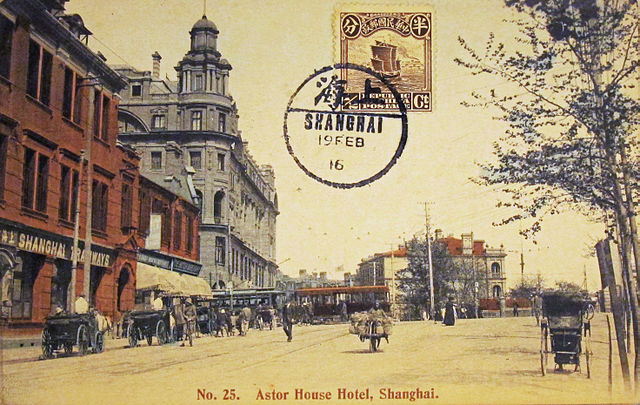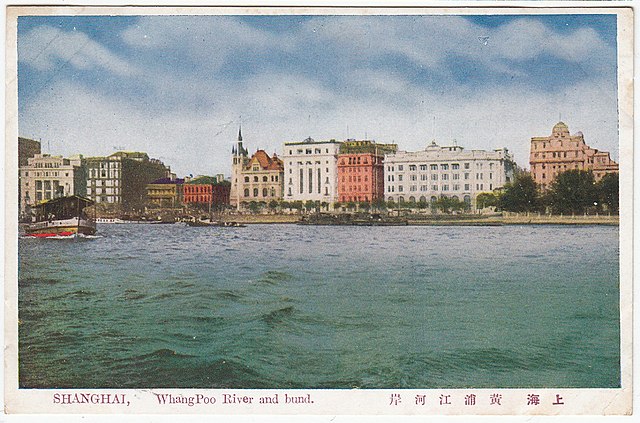
Thammasat University students are cordially invited to participate in a free Zoom event on Transpacific Celebrity: Xiao Hong, Agnes Smedley, and Eileen Chang
The seminar is organized by the Faculty of Arts, The University of Hong Kong (HKU).
The TU Library collection includes books by Agnes Smedley, and volumes by the other two authors may be requested from the TU Library Interlibrary Loan (ILL) service.
The speaker will be Assistant Professor Clara Iwasaki, Ph.D. of the Department of East Asian Studies, University of Alberta, Canada.
The discussant for the event will be Professor Nicole Huang, chairperson of the Department of Comparative Literature, School of Humanities, HKU.
The moderator will be Assistant Professor Elizabeth LaCouture of the Gender Studies Programme, School of Humanities, HKU.
The event will be held on Wednesday, 9 March 2022 at 11am Bangkok time.
Students may register to receive a Zoom link at this link:
https://hkuems1.hku.hk/hkuems/ec_regform.aspx?guest=Y&UEID=80384
For further information or with any questions, please write to
gchallen@hku.hk
As the webpage announcing the event explains,
This talk focuses on the way three authors, Xiao Hong, Agnes Smedley and Eileen Chang, circulated around the transpacific. All three writers are strongly associated with autobiographical writings and in the case of Xiao and Chang, their sensational biographies (particularly their love lives) have frequently overshadowed their writing. All three women deployed their literary personae, but their control over their image was never absolute. Xiao Hong and Agnes Smedley were friends and more importantly, they circulated each other’s works and literary images. Xiao Hong sees in Smedley’s work a universal feminist struggle. Smedley sees in Xiao Hong a vision of a progressive and particularly Chinese proletarian feminism. For Eileen Chang, her autobiographical novels remained unpublished until many years after her death because her stark self-revelation was inconsistent with the image of old Shanghai glamor that her earlier fiction had conjured up.

About Xiao Hong, one online description notes,
She was born in 1911, during one of China’s most turbulent periods, all leading up to the Second Sino-Japanese War. In addition to the cultural turmoil, Xiao’s mother passed away when she was nine, leaving her to be raised by an abusive father whom she ran away from at the age of 20. In Harbin, she barely avoided being sold to a brothel, but still ended up pregnant, abandoned by her fiancé, and living in desperate poverty.
In 1933, Xiao Jun, the publisher of a local newspaper, befriended her and gave her the space and means to start writing. Over the next nine years, she produced one of the most powerful literary oeuvres in Chinese history. At a time when nationalistic literature was the norm, she focused on the lives of ordinary people struggling to survive. Her first novel, The Field of Life and Death, was one of the earliest works to depict life under Japanese rule, focusing on the tortured lives of several peasant women. She also co-wrote a collection of autobiographical essays, Market Street, and Tales of Hulan River, her most successful long novel.
Around that same time (1940), she started serializing Ma Bo’le’s Second Life, the first part of a planned trilogy that would satirize the war and the rampant patriotism of the time. Unfortunately, in 1942, at the age of 30, she passed away from health complications, leaving both the trilogy unfinished, and the novel itself.
For years, her work remained in obscurity in China and elsewhere, but interest in her work has grown immensely in recent times, and today, Xiao Hong is remembered as one of the definitive writers of China’s Republican era. In fact, over the past half-dozen years, two biopics have come out about her life. The first, Falling Flowers, is available on Netflix, and below you’ll find a trailer for The Golden Era.
Ma Bo’le’s Second Life presents a stark-yet-humorous view of the period building up to the Second Sino-Japanese War, in a candor absent from much of Chinese literature. Following the journey of Ma Bo’le, historic events are presented through the perspective of a man appalled by his fellow citizens’ inability to see the obvious.
Here is an excerpt from Ma Bo’le’s Second Life:
Ma Bo’le’s return home took his wife by surprise, but she reacted indifferently to the reality that his business had failed. No arguments, no questions; it was as if the news did not register. She employed the silent treatment, avoiding direct contact by a series of sidelong glances. Sometimes she looked at him as if he were a total stranger.
When the maidservant came to call them to dinner, she picked up Jacob and walked out without her usual comments of:
“Dinnertime,” or “Let’s eat.”
This did not affect their little daughter, as she looked back over her mother’s shoulder, clapped her hands, and called out, “Daddy!”
All this brought tears to Ma Bo’le’s eyes.
He was partial to the children, who were not aware that their daddy had returned home in disgrace. During dinner, no one at the table spoke to him, and he was not invited to join their conversations.
Father had not said a word at mealtime for a couple of days. His silver chopsticks clanged against his rice bowl as he ate. After he finished his first bowl of rice, Mama Geng came up to give him a refill. He waved her off, put down his rice bowl, rose from the table, and walked away, followed by his younger son, Ma Bo’le’s brother and rival for their father’s affections, such as they were, and inheritance.
The big family cat jumped from its perch on the windowsill onto the cushioned chair Father had just vacated, where it crouched and purred. It was black, and very well fed. It returned Bo’le’s stare…
They were sad days for Ma Bo’le. At night he opened his window and looked outside—the moon was out, and he intoned thoughts that came to him.
“When the moon comes out, the sun disappears.”
“When it rains, the streets get wet.”
In the autumn, fallen leaves covered the courtyard and lined the hallways. Night winds whipped them against windows as Ma Bo’le tossed and turned in bed, his mind flooded with chaotic thoughts. In fact he thought so hard that his head began to ache. He felt a little better after getting up and drinking a cup of tea. Looking out the window into the dark night, he embarked upon a soliloquy:
“Without the moon there’s total darkness.
“Leaves fall to the ground when autumn arrives.”
This led him to a series of related musings:
“The rich look down on the poor.
“Officials look down on the common people.
“My wife looks down on me.
“When the wind dies down, the leaves stop falling.
“If I were rich, my wife would look up to me.
“If I were rich, Father would still be Father, the kids would still be my kids.
“That’s what life is all about.
“Life is being alive.
“Death is not being alive.
“Suicide leads to death.
“When it’s time to flee, you have to flee.”
The thought of escape was tempting, but he knew that this was not the right moment. Bo’le stayed home for a long spell this time, some seven or eight months.
Agnes Smedley was an American journalist and activist who wrote about feminist and socialist consciousness in the autobiographical novel Daughter of Earth (1929).
An an Arizona State University (ASU) Library webpage explains,
Influenced by her impoverished childhood Agnes Smedley was an advocate for women, children, peasants and liberation for the oppressed.
Eileen Chang was a Chinese-born American essayist, novelist, and screenwriter. She is a well-known feminist in Chinese history.
In 2007, Lust, Caution, a film adaptation of Chang’s 1979 novella, directed by Ang Lee, was released.

(All images courtesy of Wikimedia Commons)
